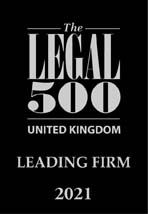Costs of Unreasonable Refusal
In a Judgement handed down on 14 June 2024 Mr Justice Knowles ordered the Defendant to pay the costs of the Claimants application for an extension of time, which he had unreasonably refused to agree to.
The background to this case – (1) Invenia Technical Computing Corporation, and (2) Invenia Labs Limited -v- Matthew Hudson (Case No: KB-2022-004857) - is long, sordid, and will likely continue for some time. However, the basic background is that the Claimants are two tech companies (a Canadian company and a wholly owned UK subsidiary) who have brought a claim against the former CEO and director of both companies, Matthew Hudson, which includes allegations of dishonesty and breach of fiduciary duties.
An Electronic Imaging Order (“EIO”) was granted to the Claimants in order to take copies of the Defendants devices and accounts on account of concern he may destroy evidence. The Claimant had sought to amend this order to have the devices returned to them rather than the Defendant as originally provided in the EIO.
The Claimants, after some time, abandoned this amendment and eventually withdrew the application. Consequently, the Defendant was entitled to his costs of responding to the application. He then went on to make an application for payment on account, and the Claimants were directed to file and serve evidence in response by 11 January 2024.
The time frame for preparing their response to the application fell across the 2023-24 Christmas and New Year break, with a number of key members of the Claimants staff, including the CEO who was giving instructions, and the Claimants solicitors being out of the office and unavailable. The Claimants wrote to the Defendant twice, once before the Christmas break and once afterwards, requesting an extension of time to file and serve their evidence.
The Defendant refused to consent to their request for an extension.
The Defendant had indicated he would be willing to consent to an extension (shorter than that which was requested) only if the Claimants would agree to the application for payment on account being dealt with on the papers. Justice Knowles found that the Claimants were entitled to refuse that demand, particularly considering what was at stake. In light of the Defendant refusing to consent, the Claimants were forced to apply for an extension of time which was granted (for longer than what was requested).
In considering whether the Claimants were entitled to their costs of that application for an extension, Justice Knowles applied the principles set out in Denton -v- TH White Ltd [2014] 1 WLR 3926, where the Court set out that an unreasonable refusal to agree to an extension of time should be punished in costs. The application itself was for a modest extension, with good reason, and wouldn’t have caused any prejudice to the Defendant; this was further supported by the application being granted in any event.
Granting the Claimants the costs of their application Justice Knowles observed that in the modern era civil litigation requires parties to behave reasonably and that may include, on occasion, agreeing to requests for short extensions by the other side – even if they’re not particularly happy to do so.







